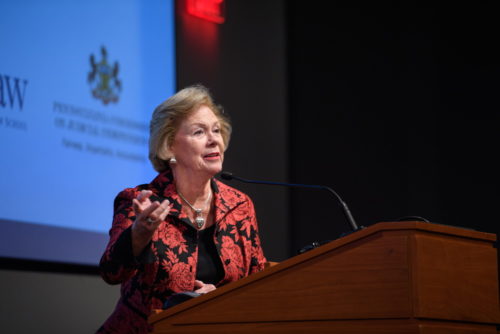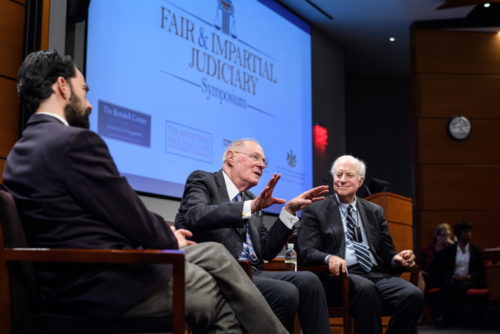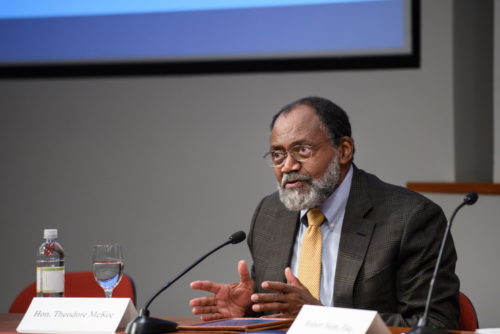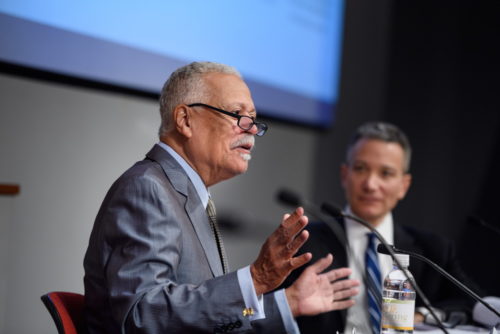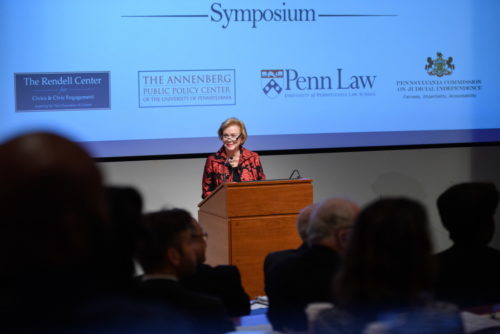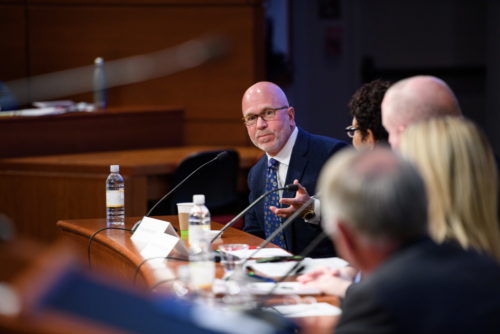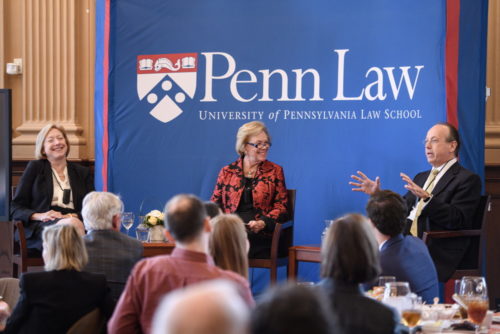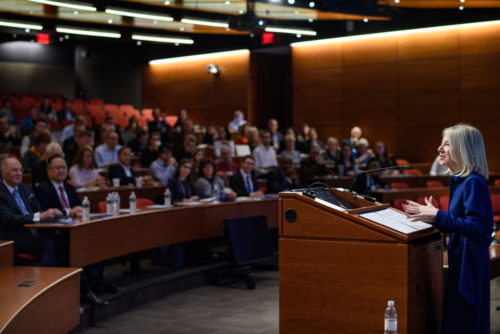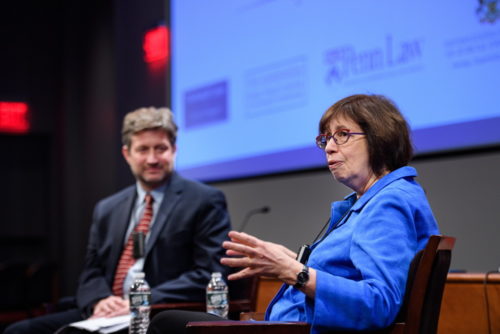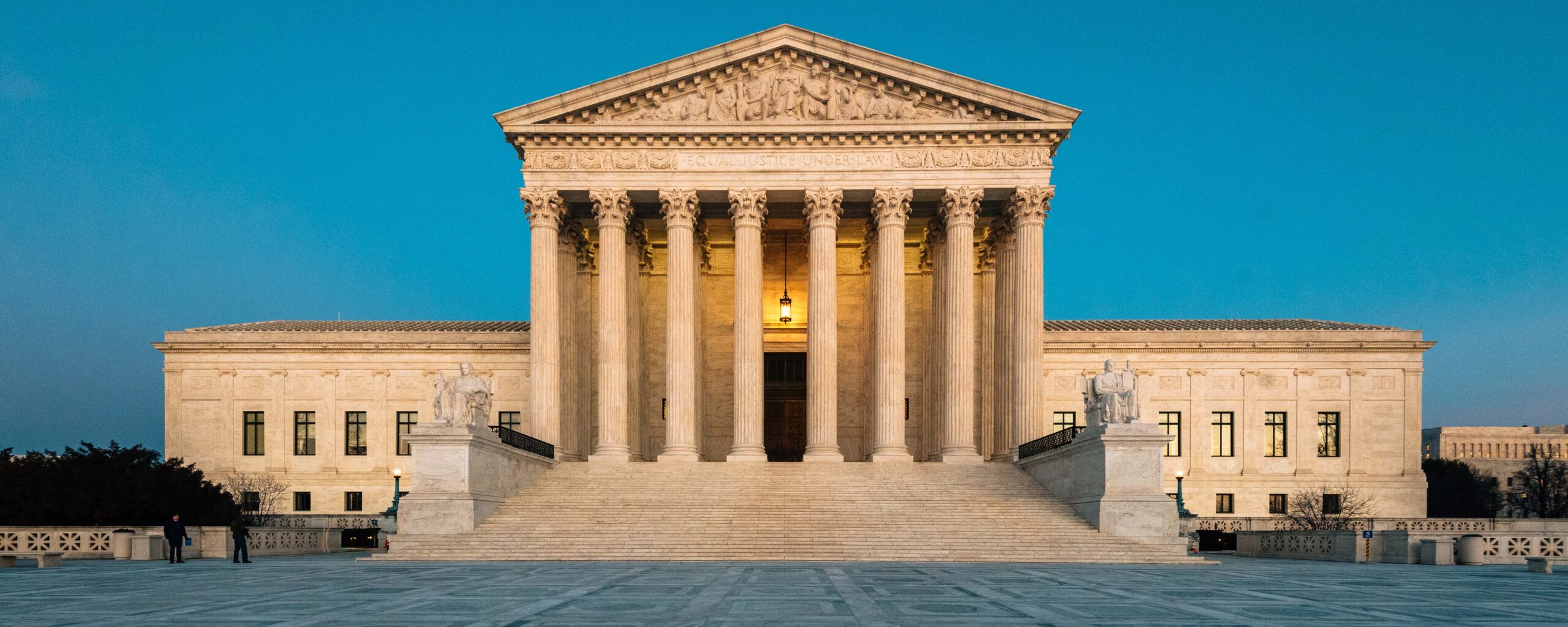U.S. Supreme Court Justice Anthony Kennedy eloquently addressed the principle of judicial independence at a daylong symposium on the “Fair and Impartial Judiciary,” sponsored by the Rendell Center for Civics and Civic Engagement in partnership with the Annenberg Public Policy Center (APPC).
“Judicial independence is so that we can do not what we want, but what we must,” said the retired Justice, after receiving a warm standing ovation from the audience in the auditorium at Penn Law School, which hosted the October 26, 2019, event. In comparison with other nations, Kennedy said, we must appreciate how rare it is that in the United States, the bar, the bench and the academy all work together to make sure the legal system functions, creating a structure that underpins judicial independence.
While some Supreme Court rulings are seen as unpopular at first, they often evolve into majority positions, he said.
“We give reasons for what we do,” Kennedy said. “And those reasons over time will convince many people that initially thought the court might be wrong. People say that the court is anti-majoritarian, [but] that’s true it seems to me only in the very short term. In the long term, it seems to me, the court is majoritarian. Most of its decisions are accepted as correct.”
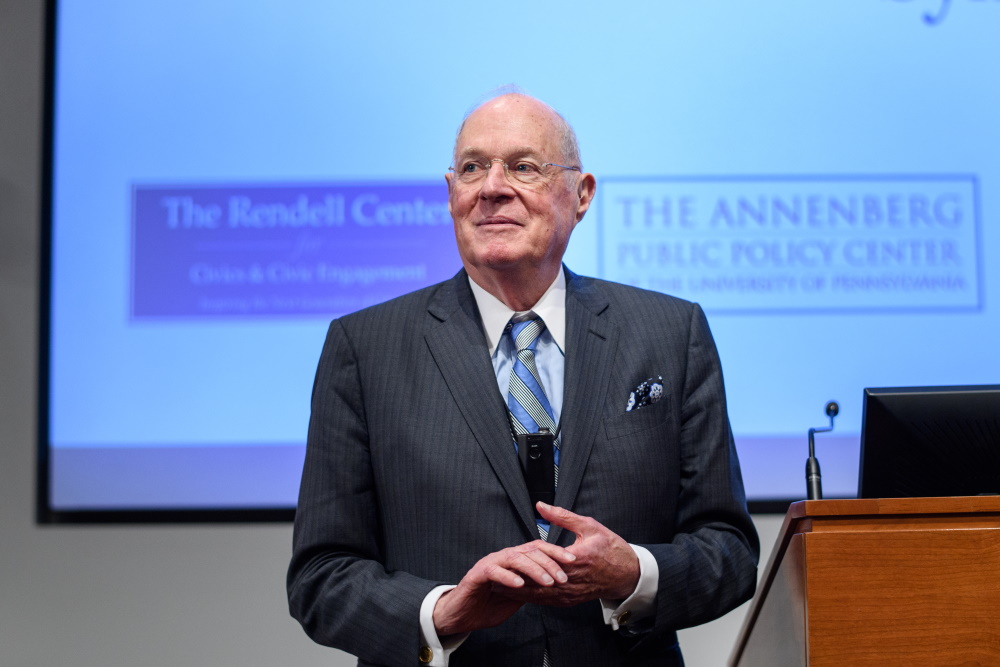
In his three decades on the Supreme Court, Kennedy was the critical tie-breaking vote on a number of high-profile cases, including the landmark 2015 ruling that established the right for same-sex couples to marry. In a question-and-answer session, Kennedy genially disagreed with the widely held view that he was a swing vote. “People were very gracious to say that I was the swing vote,” he said. “I say, the cases swing. I don’t.”
The fair and impartial judiciary symposium, organized by APPC and the Rendell Center, comes at a time of political polarization – and when questions are being raised in society about the independence and impartiality of the judiciary. While a majority of Americans see the U.S. Supreme Court as a trusted institution, according to APPC’s latest Annenberg Civics Knowledge Survey, more than half of Americans feel that the court “gets too mixed up in politics.” The survey results, released prior to the symposium, also suggest that the distinction between judges and elected politicians is becoming blurred.
(Photos by Sameer Khan.)
The themes of the day were set in an introduction by Penn President Amy Gutmann. “Nothing in my mind is more fundamental to the future of American democracy than civics education and the rule of law, the independence of the courts, and a free and impartial judiciary,” Gutmann said. She added that political gridlock in Washington meant that many critical issues such as voting rights, health care, abortion, and campaign finance were less likely to be decided by Congress, making the role of the courts extremely important on all these issues.
Judge Marjorie O. Rendell, president of the Rendell Center, noted that in APPC’s 2019 civics survey, 22% of U.S. adults could not name a single one of the three branches of government. “Civics education,” the judge said, “is being pushed aside in favor of subjects on standardized tests.” She added, “At the Rendell Center we are trying to reverse this trend.”
The symposium drew other noted jurists, scholars and commentators, including Judges Emmet G. Sullivan, Theodore A. McKee, Anthony J. Scirica, and Stephanos Bibas; Penn Law Dean Theodore Ruger and former Duke Law Dean David Levi; journalist Linda Greenhouse and commentator Michael Smerconish; former Solicitor General Paul Clement; and National Constitution Center President Jeffrey Rosen.
